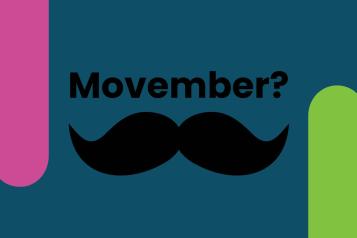Breast Cancer Awareness Month 2021

The information in this article is taken from Breast Cancer Now.
Signs & symptoms
- A lump or swelling in the breast, upper chest or armpit
- A change to the skin, such as puckering or dimpling
- A change in the colour of the breast – the breast may look red or inflamed
- A nipple change, for example it has become pulled in (inverted)
- Rash or crusting around the nipple
- Unusual liquid (discharge) from either nipple
- Changes in size or shape of the breast
On its own, pain in your breasts is not usually a sign of breast cancer. But look out for pain in your breast or armpit that’s there all or almost all the time.
Although rare, men can ger breast cancer. The most common symptom of breast cancer in men is a lump in the chest area.
Most breast changes, including breast lumps, are not cancer. But the sooner breast cancer is found, the more successful treatment is likely to be.
Get any new or unusual changes checked by a GP.
How to check your breasts
There’s no special way to check your breasts and you do not need any training.
Checking your breasts is as easy as TLC:
- Touch your breasts: can you feel anything new or unusual?
- Look for changes: does anything look different to you?
- Check any new or unusual changes with a GP
Everyone will have their own way of touching and looking for changes.
Get used to checking regularly and be aware of anything that’s new or different for you.
Check your whole breast area, including up to your collarbone (upper chest) and armpits.
What will happen when I see my GP?
Due to the coronavirus pandemic your appointment may be over the phone.
If your appointment is in person, your GP will examine your breasts.
After speaking to you on the phone, or examining your breasts, your GP may:
- Decide there’s no need for further investigation
- Ask to see you again after a short time
- Refer you to a breast clinic
Being referred to a breast clinic does not mean you have breast cancer, just that further assessment is needed to find out what is going on.
If your GP is male and you do not feel comfortable going to see him, ask if there’s a female doctor or practice nurse available.
You can also ask for a female nurse or member of staff to be present during your examination, or you can take a friend or relative with you, but check first if you are able to do this.
For further support
If you are registered with a GP and between the ages of 50-70 years old you can be screened every 3 years.
In some pilot schemes this is extended to 47-73 years old.
If you are a female over the age of 70 you can arrange a screening by contacting your GP.
The Wigan, Wrightington and Leigh NHS Trust offer a breast cancer family history service at the Thomas Linacre Outpatient Centre, and The Christie Cancer Unit.


